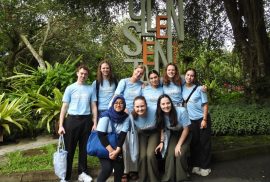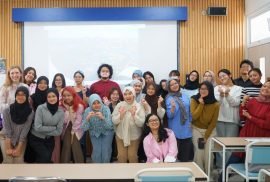On 5-6 February 2026, the Cross Cultural Understanding (CCU) Orientation and Welcome Event was held by the International Undergraduate Program (IUP) of Psychology, Universitas Gadjah Mada. The event was organized to welcome incoming exchange students for the even semester of the 2025/2026 academic year and to support their academic and cultural adjustment in Yogyakarta.
In total, the program welcomed ten exchange students from various partner universities, including the University of Groningen, Saxion University, the University of Birmingham, Warwick University, and several others. Through a combination of academic briefings and cultural activities, CCU aimed to introduce Indonesian culture, particularly the local context of Yogyakarta, so that students could minimize culture shock and adapt comfortably during their study period.





